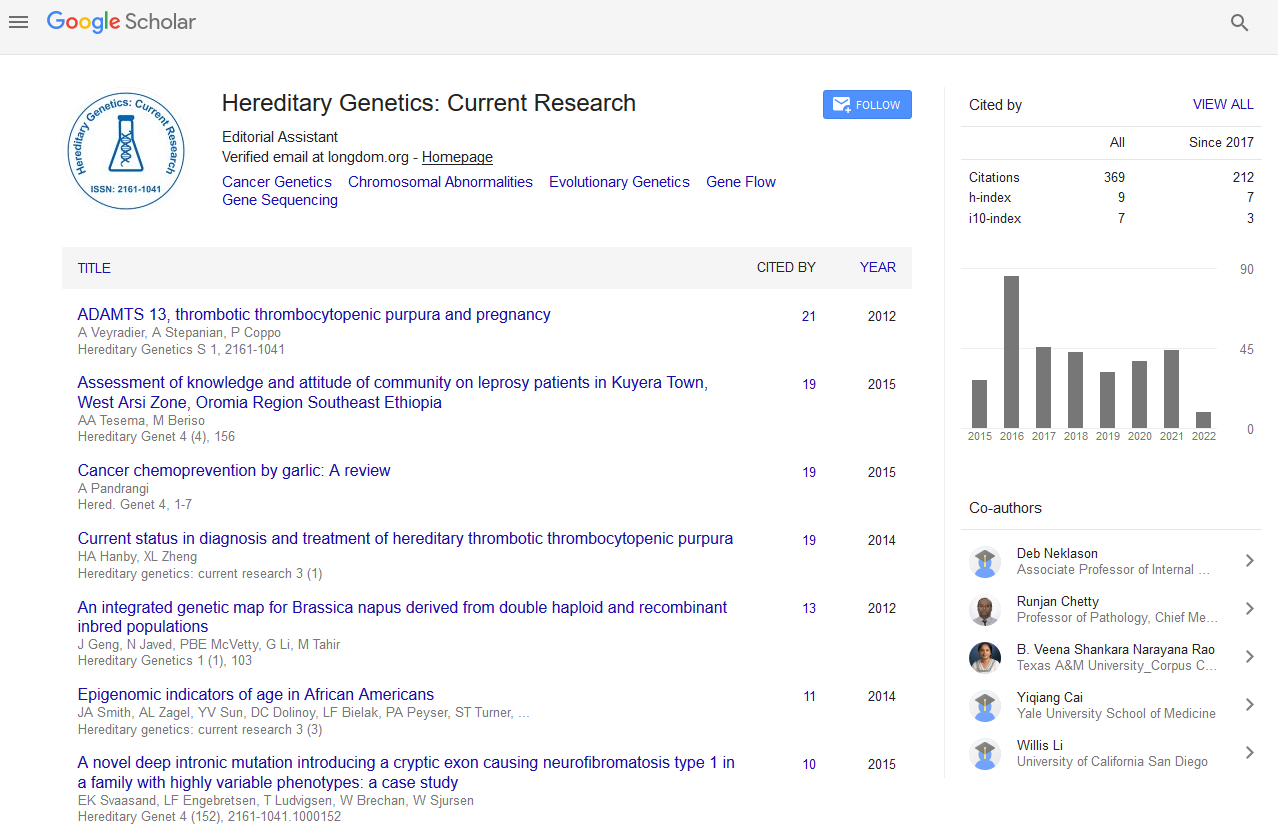PMC/PubMed Indexed Articles
Indexed In
- Open J Gate
- Genamics JournalSeek
- CiteFactor
- RefSeek
- Hamdard University
- EBSCO A-Z
- NSD - Norwegian Centre for Research Data
- OCLC- WorldCat
- Publons
- Geneva Foundation for Medical Education and Research
- Euro Pub
- Google Scholar
Useful Links
Share This Page
Journal Flyer

Open Access Journals
- Agri and Aquaculture
- Biochemistry
- Bioinformatics & Systems Biology
- Business & Management
- Chemistry
- Clinical Sciences
- Engineering
- Food & Nutrition
- General Science
- Genetics & Molecular Biology
- Immunology & Microbiology
- Medical Sciences
- Neuroscience & Psychology
- Nursing & Health Care
- Pharmaceutical Sciences
Abstract
Serum Fatty Acid Synthase as a Marker of Esophageal Neoplasia
Hajime Orita, Malcolm Brock, Yoshimi Iwanuma, Kazunori Simada, Hiroyuki Daida, Okio Hino, Yoshiaki Kajiyama and Masahiko Tsurumaru
Background: Fatty Acid Synthase (FAS) is highly expressed in many human cancers. Previously, we reported that FAS is expressed at very high levels in esophageal cancer, and that the growth of these cancers can be inhibited by pharmacological agents that target this enzyme. We also have reported that this enzyme is overexpressed not only in tissue, but also in serum in patients with various cancers. In this present analysis, we investigate the serum level of this enzyme in patients, and consider whether FAS can be a prognositc tumor marker or one of early detection.
Materials and Methods: By using an ELISA kit, we measured the serum levels of FAS in 154 patients, who underwent surgical resection of esophageal cancer at the Juntendo Hospital in Tokyo, Japan. We also measured the serum FAS levels of 153 healthy volunteers recruited as normal controls from a cardiology research group. Finally, we considered how FAS levels correlated with pathological and clinical data. Results: Serum FAS levels in esophageal cancer patients were significantly higher than in healthy control subjects(13.2 ug/ml vs. 2.3 ul/ml, respectively). FAS levels did not correlate with clinical or-pathological data.
Conclusions: Serum FAS levels are expressed at significantly high levels in human esophageal carcinomas. FAS serum levels may be a tumor marker candidate for early esophageal cancer detection.


